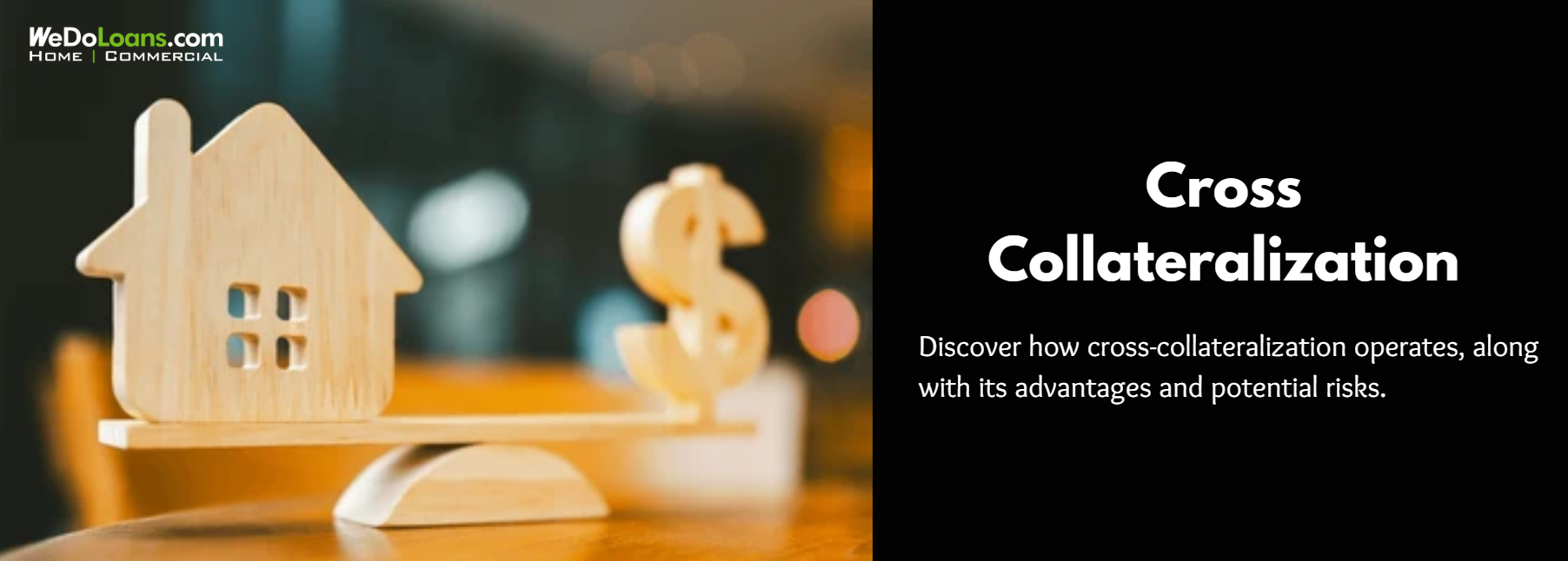
Cross-collateralization can be a useful financing option for investors looking to expand their portfolio by leveraging existing assets. However, as with any financial strategy, it comes with inherent risks that should be carefully considered. For those with available collateral, understanding how cross-collateral loans work could open the door to cost-effective investment opportunities.
What Is Cross-Collateralization in Commercial Real Estate?
Cross-collateralization involves using an owned asset, such as real estate or savings, as collateral to secure a loan. By pledging these assets, borrowers can often obtain loans with lower interest rates, making them more affordable. However, using assets as collateral increases the risk of losing them if the borrower defaults, as the lender may seize or liquidate these assets to recover the debt.
How Does Cross-Collateralization Work?
The principle behind cross-collateralization is to reduce borrowing costs by providing security to the lender. When a loan is backed by assets, lenders face less risk and are therefore more willing to offer favorable terms, such as reduced interest rates.
Cross-collateralization is commonly used in commercial real estate, where one asset is used to secure multiple loans. However, this arrangement can lead to a situation known as “cross-default,” where defaulting on one loan may trigger default on others due to the shared collateral.
Key Considerations for Borrowers
Cross-collateral loans are complex legal arrangements. Borrowers should ensure they fully understand the terms and conditions, especially clauses related to asset security. A cross-collateralization clause, sometimes referred to as a “security interest,” may be included in the loan agreement. It is essential to review the loan’s Truth in Lending Disclosure to identify any such clauses.
Benefits of Cross-Collateralization
- Lower Interest Rates: Assets backing the loan reduce lender risk, leading to more favorable borrowing costs.
- Increased Borrowing Power: Borrowers can often secure larger loans due to the additional collateral.
- Equity Leverage: Investors can use existing assets to minimize upfront capital requirements and expand their portfolio.
- Faster Funding: These loans are often quicker to process, particularly when the same lender manages multiple loans.
Risks of Cross-Collateralization
- Default Risk: If payments are missed, the lender may seize the collateral, leading to asset loss.
- Bankruptcy Issues: In bankruptcy, secured assets may be sold to repay lenders, even if the debt is discharged.
- Asset Disposal Restrictions: Selling a secured asset may require loan repayment in full, limiting flexibility for the borrower.
Are Cross-Collateral Loans Right for You?
For commercial real estate investors, cross-collateral loans can provide a cost-effective way to acquire new properties. However, the risks, including potential asset loss and restrictions on asset disposal, must be carefully weighed. Borrowers should thoroughly review loan terms, seek legal and financial advice, and ensure they are comfortable with the risks before proceeding.
By leveraging existing assets, investors can access lower-cost financing, but these loans require a clear understanding of their implications to avoid unexpected losses or complications.
